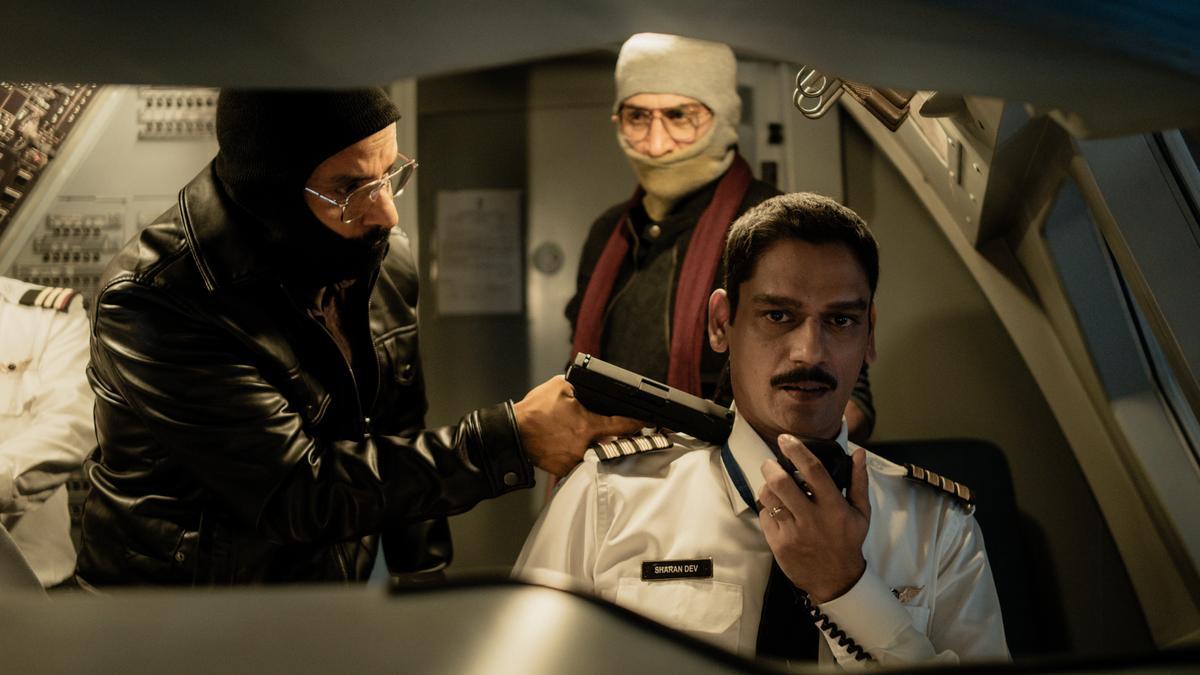
Netflix’s latest web series, “IC 814: The Kandahar Hijack,” encountered significant backlash this week as social media outrage erupted over the depiction of hijacker names. The series, which has garnered critical acclaim for its portrayal of the December 24, 1999 hijacking of Indian Airlines flight IC-814, has come under fire for allegedly distorting the religious identities of the real-life terrorists involved.
The controversy began when several social media users noticed that the series refers to two of the hijackers with Hindu-sounding names, Bhola and Shankar, causing a furor among the public. The Information & Broadcasting Ministry promptly responded by summoning Monika Shergill, the content chief at the over-the-top (OTT) platform Netflix.
As the backlash continued to intensify, a public interest litigation (PIL) was filed before the Delhi High Court by the president of a group called ‘Hindu Sena’. The petition argues that the series misrepresents historical facts by assigning Hindu names to some of the hijackers and demands that the certification of the series be revoked.
The six-episode series, directed by Anubhav Sinha, chronicles the harrowing events of the IC-814 hijacking. Shortly after taking off from Kathmandu bound for Delhi, the Airbus 300 was commandeered by hijackers and forced to divert to multiple locations including Amritsar, Lahore, Dubai, and eventually Kandahar in Afghanistan, which was then under the control of the Taliban. The hijacking culminated in a high-stakes negotiation lasting six days, resulting in the release of three notorious terrorists—Masood Azhar, Omar Saeed Sheikh, and Mushtaq Ahmad Zargar—by the Atal Bihari Vajpayee-led National Democratic Alliance (NDA) government, in exchange for the safety of the passengers and crew.
Significantly, the series is partially based on “Flight To Fear,” a first-hand account of the incident written by Captain Devi Sharan, the pilot of IC-814, in collaboration with journalist Srinjoy Chowdhury. The creators of the series included a disclaimer noting that it is a fictional narrative inspired by real-life events, but this caveat has done little to mollify critics.
The crux of the controversy stems from what many consider to be creative liberties taken by the series’ creators. The names Bhola and Shankar, used for two of the hijackers, have raised concerns, particularly because the series does not explicitly clarify they were aliases.
. Historical records, including a January 6, 2000 press release from the Union Home Ministry, identify the hijackers as Ibrahim Athar, Shahid Akhtar Sayeed, Sunny Ahmed Qazi, Mistri Zahoor Ibrahim, and Shakir, who used the codenames Chief, Doctor, Burger, Bhola, and Shankar respectively. The press release notes these names were the ones the hijackers used to address each other, further complicating public perception around this issue.
Some observers argue that while the historical distinction is evident to those familiar with the details of the event, they worry about future generations misinterpreting the information. BJP leader Amit Malviya voiced these concerns on social media platform X, criticizing filmmaker Anubhav Sinha for allegedly legitimizing the hijackers’ intent by using non-Muslim names for them. Malviya warned, “Decades later, people will think Hindus hijacked IC-814.”
While the series does not explicitly state that Bhola and Shankar were aliases, it does reveal the name of a key player, Chief, during a critical negotiation deadlock. Journalist Neelesh Misra, who authored a book on the hijacking, echoed this in a post on X, writing that Chief was actually the brother of Masood Azhar. Within the narrative of the series, Bhola and Shankar are minor characters whose code names are mentioned only once across six episodes.
This clash over perceived historical inaccuracies underscores broader debates in India over representation and creative freedom in media. As the legal developments unfold and social media critiques persist, it remains to be seen how streaming platforms like Netflix will navigate the tightrope between creative expression and historical fidelity.
The implication of this controversy reverberates beyond entertainment, touching upon the sensitive issue of religious identity and historical memory in modern India. As audiences continue to explore the retelling of dramatic events like the IC-814 hijacking, it is clear that filmmakers will need to tread carefully, balancing artistic license with respect for factual history to avoid similar backlashes in the future.












